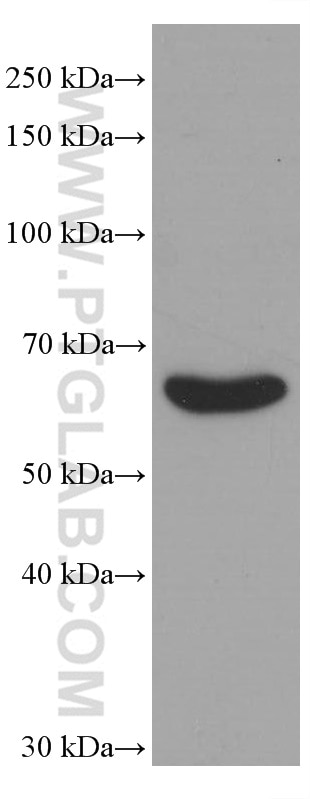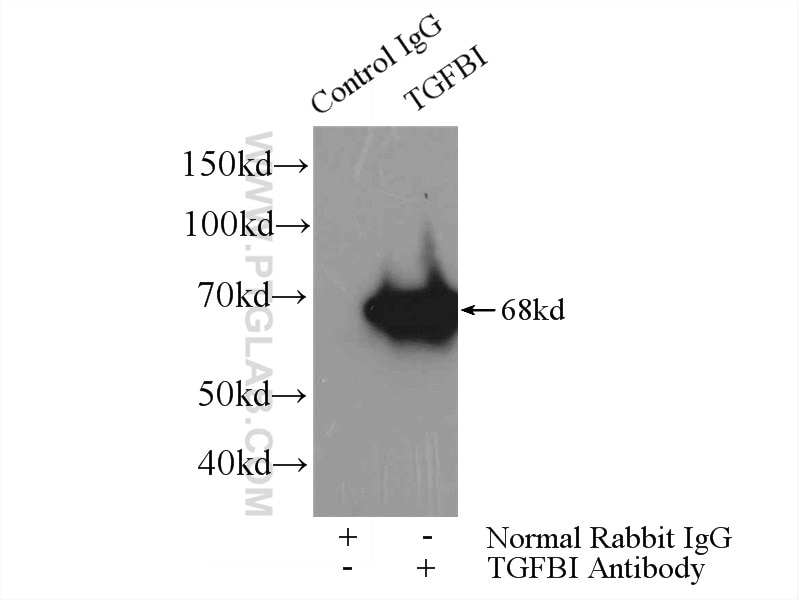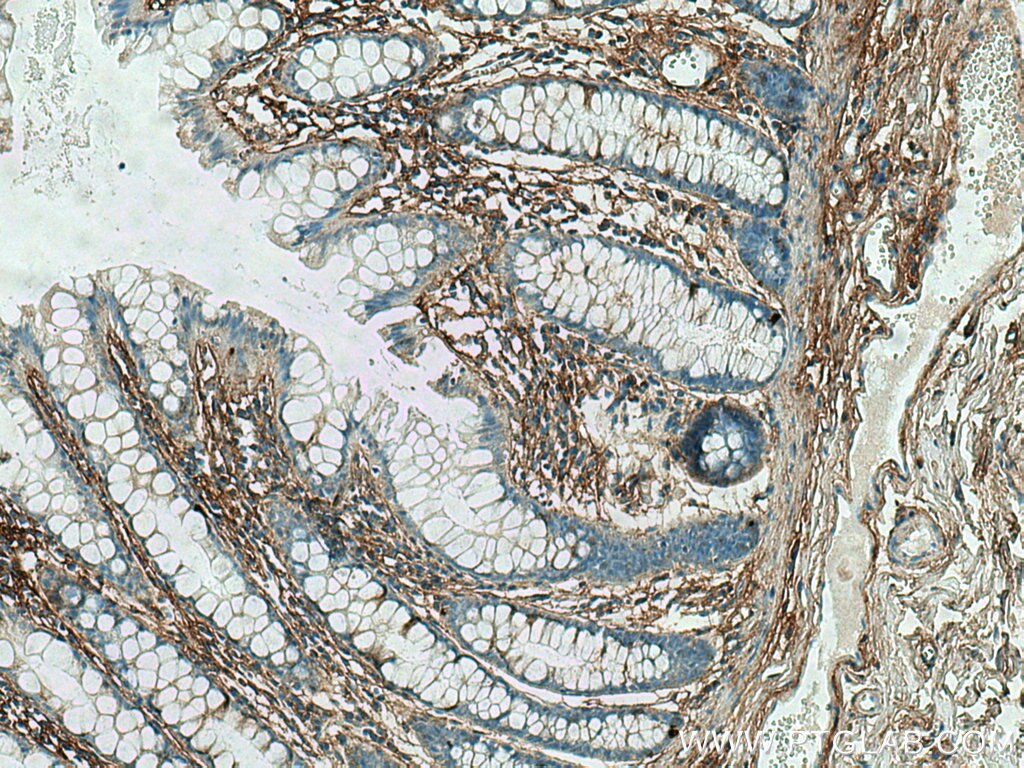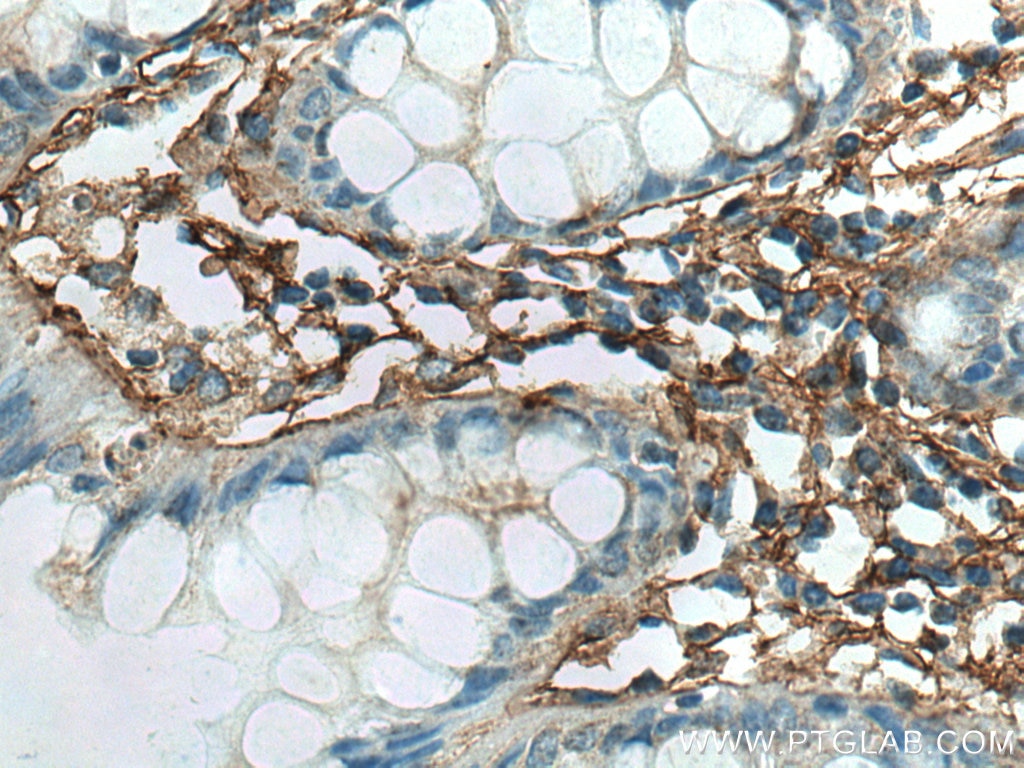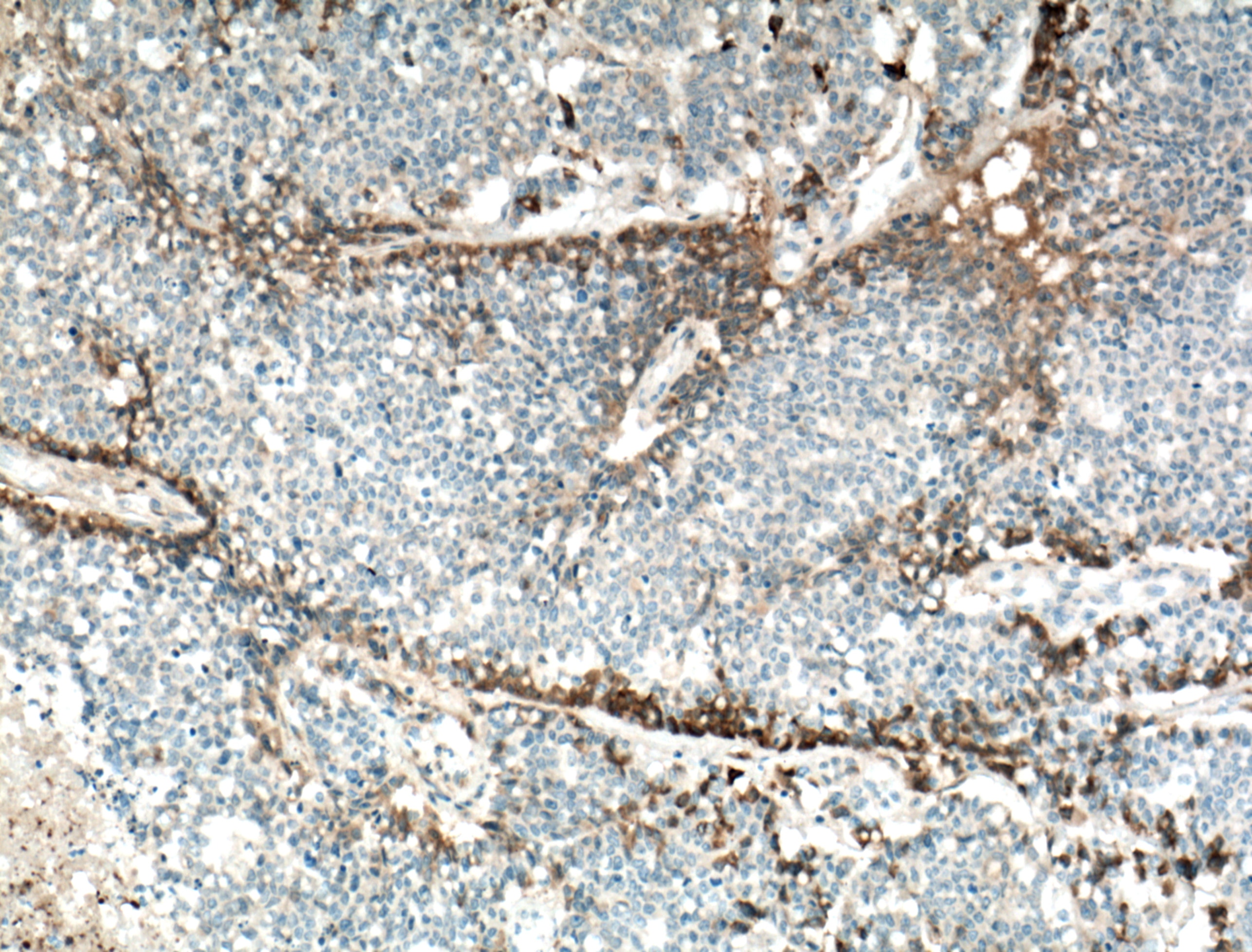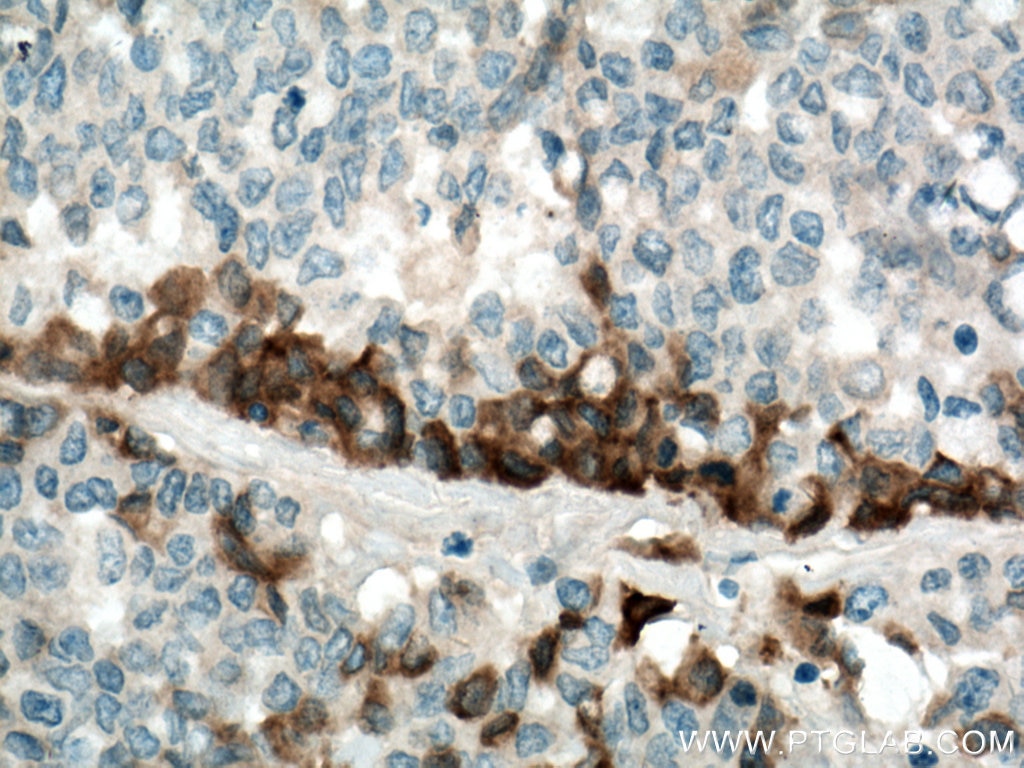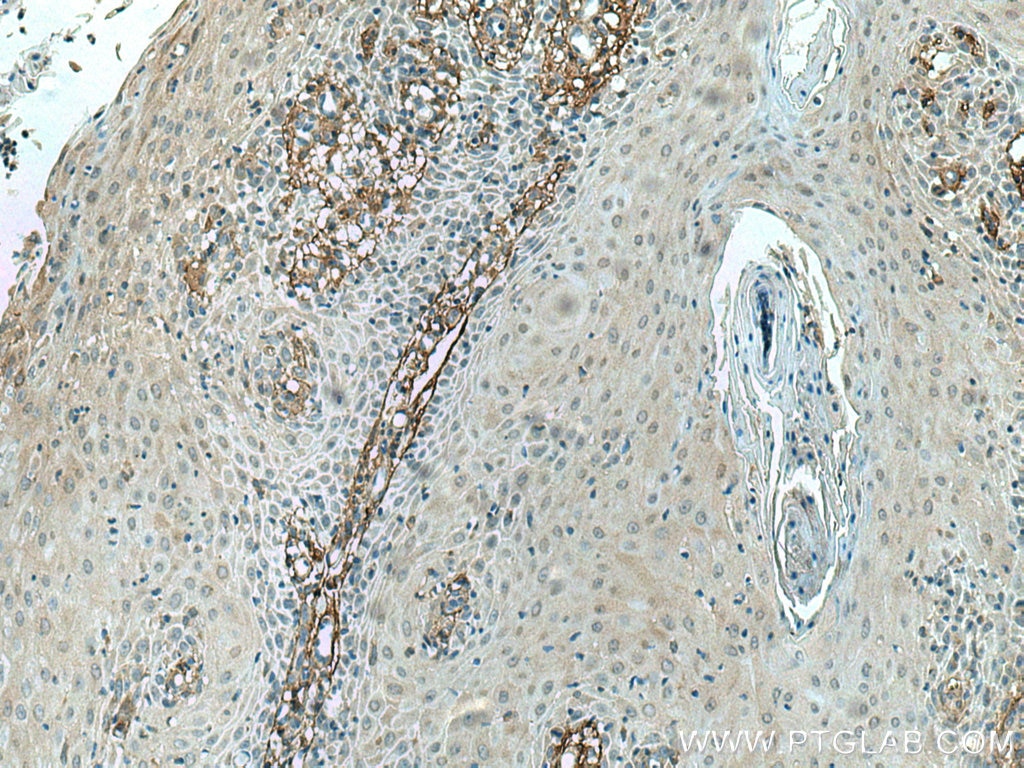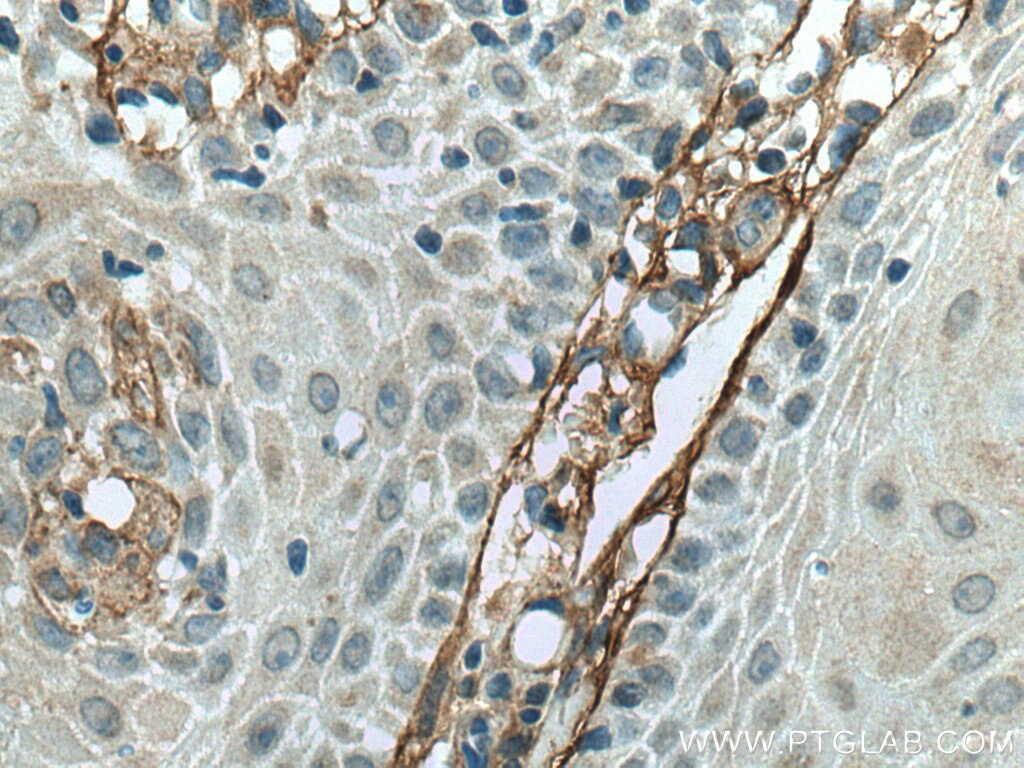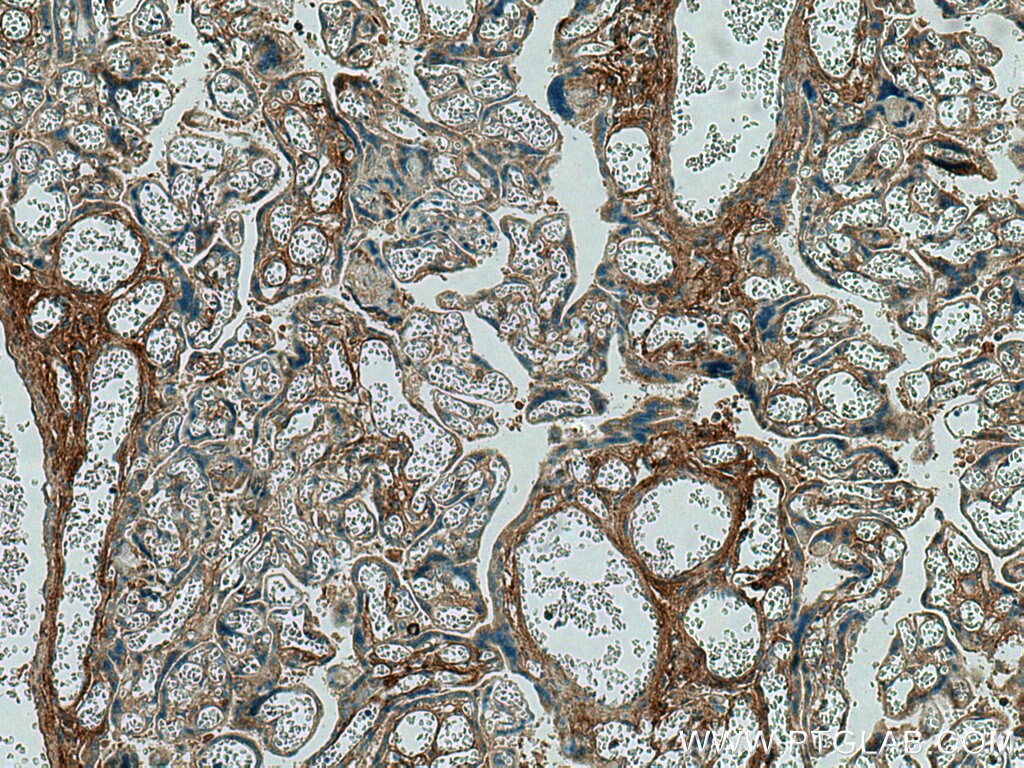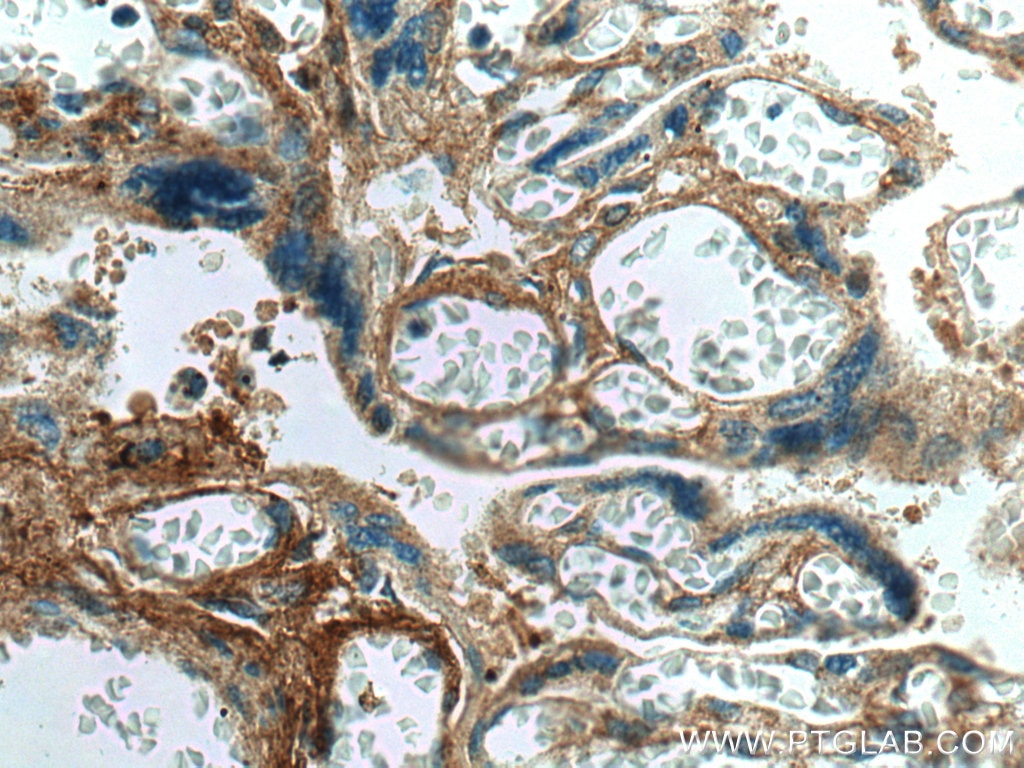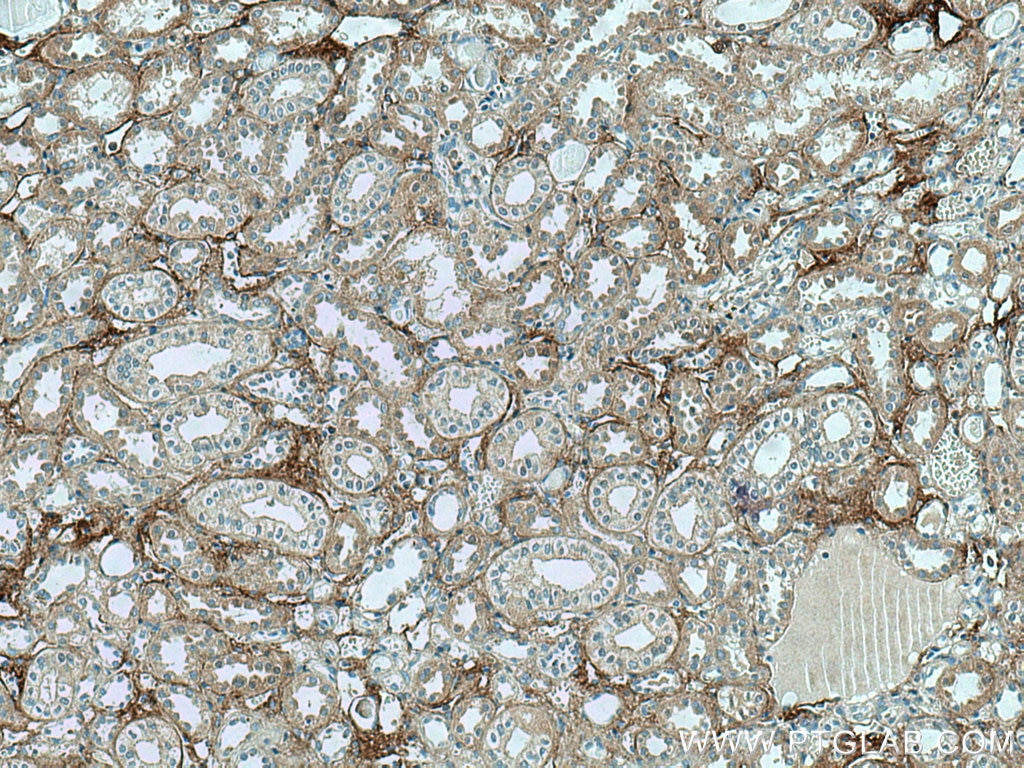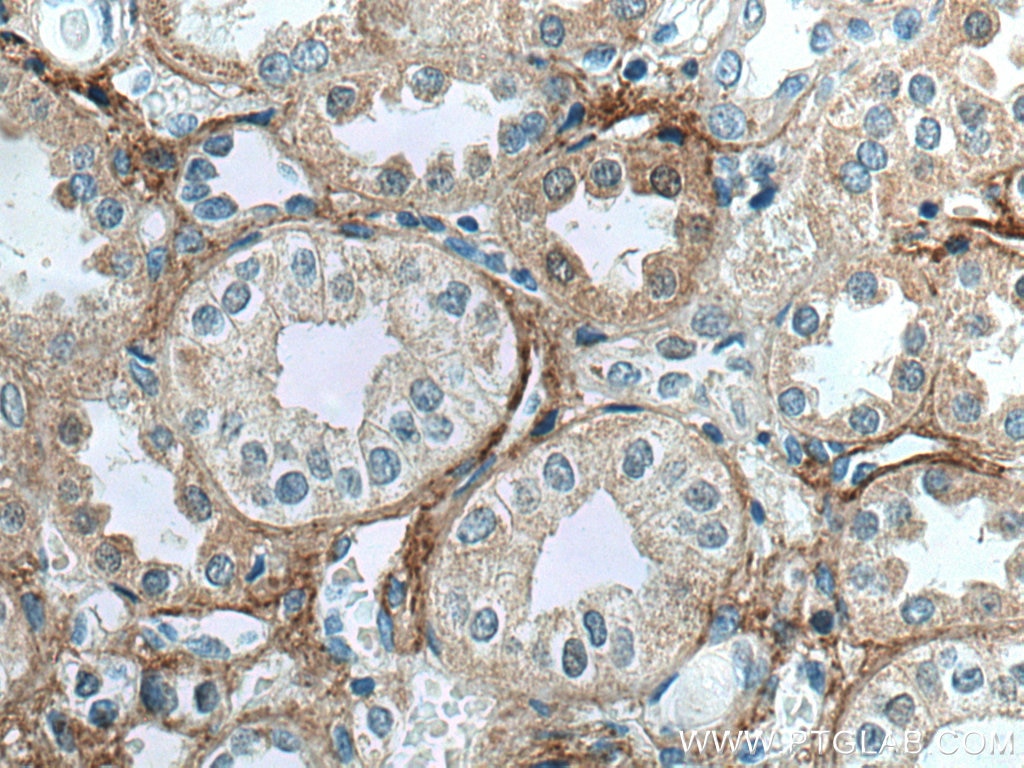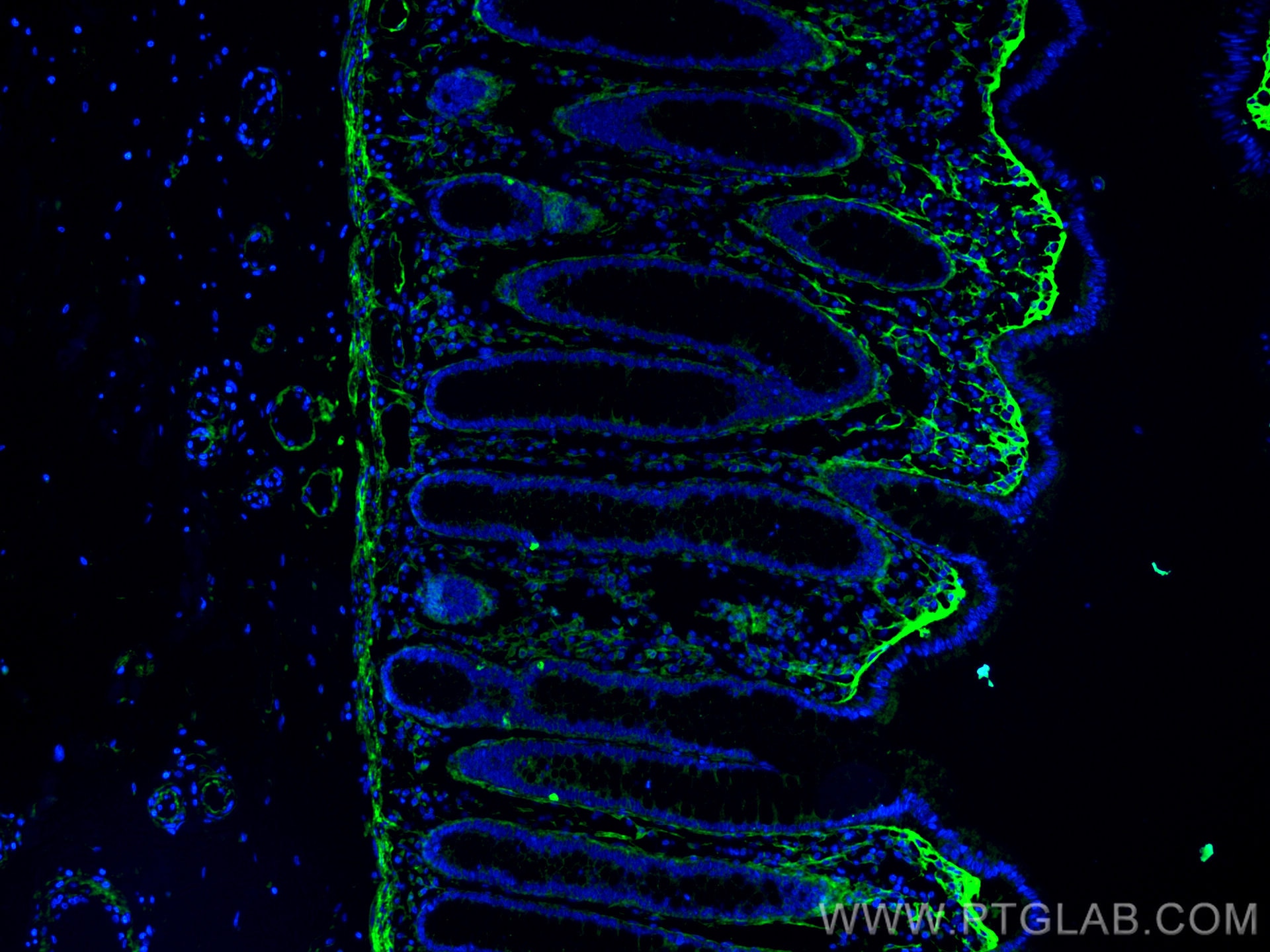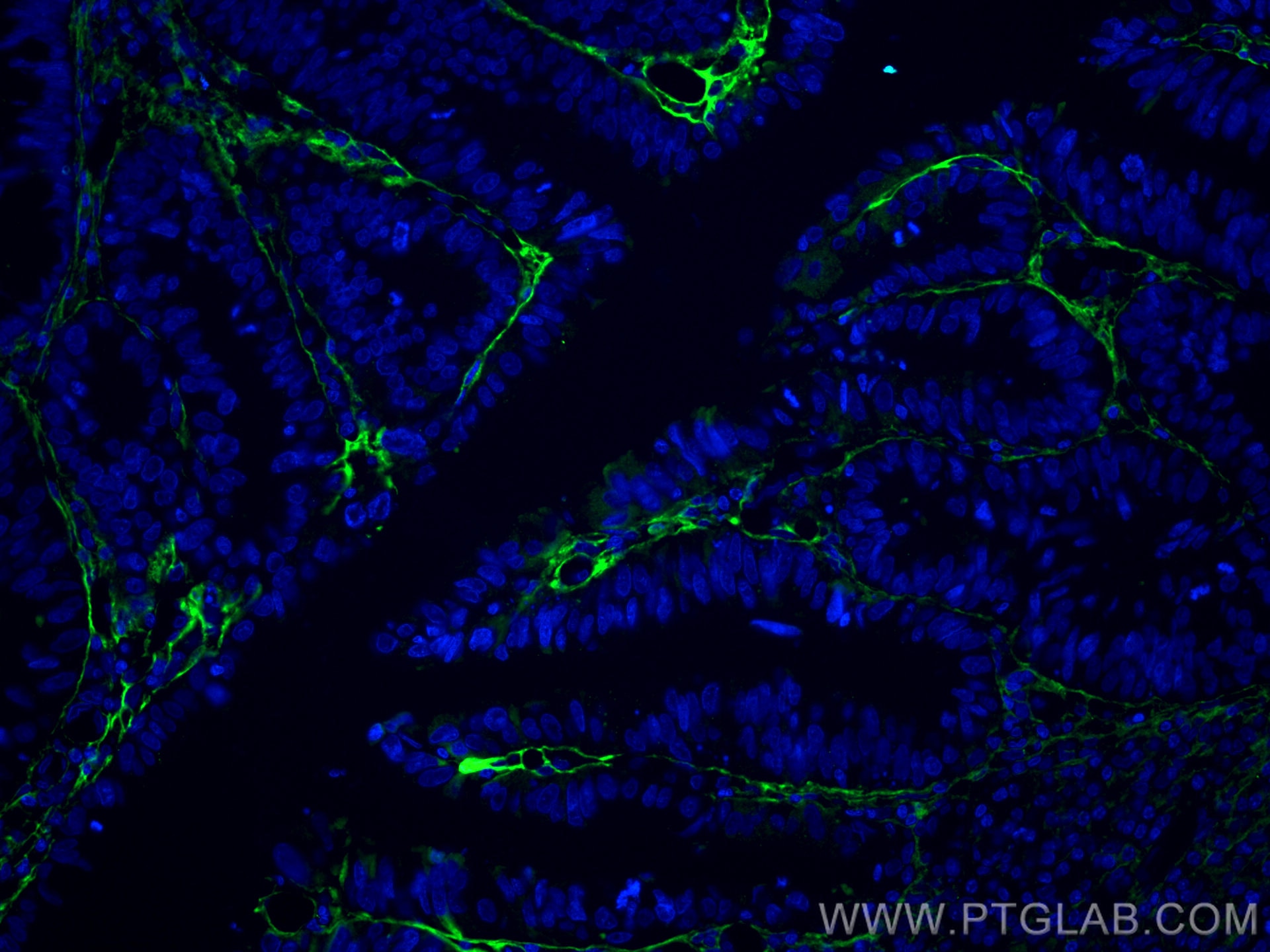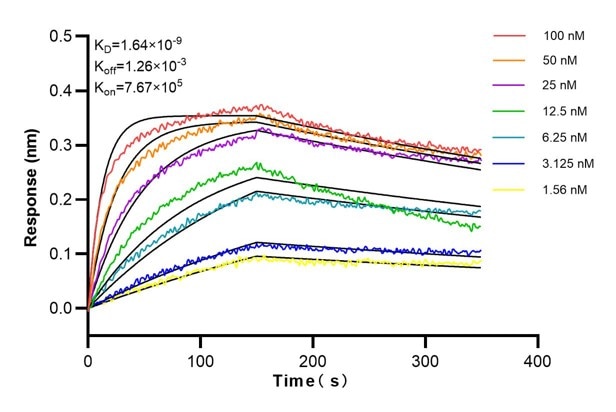- Phare
- Validé par KD/KO
Anticorps Monoclonal anti-TGFBI / BIGH3
TGFBI / BIGH3 Monoclonal Antibody for WB, IHC, IF-P, IP, ELISA
Hôte / Isotype
Mouse / IgG2a
Réactivité testée
Humain et plus (1)
Applications
WB, IHC, IF-P, IP, ELISA
Conjugaison
Non conjugué
CloneNo.
3E11D11
N° de cat : 60007-1-Ig
Synonymes
Galerie de données de validation
Applications testées
| Résultats positifs en WB | tissu rénal humain, |
| Résultats positifs en IP | cellules HeLa |
| Résultats positifs en IHC | tissu de côlon humain, tissu de cancer de la peau humain, tissu de cancer du côlon humain, tissu placentaire humain, tissu rénal humain il est suggéré de démasquer l'antigène avec un tampon de TE buffer pH 9.0; (*) À défaut, 'le démasquage de l'antigène peut être 'effectué avec un tampon citrate pH 6,0. |
| Résultats positifs en IF-P | tissu de cancer du côlon humain, |
Dilution recommandée
| Application | Dilution |
|---|---|
| Western Blot (WB) | WB : 1:500-1:2000 |
| Immunoprécipitation (IP) | IP : 0.5-4.0 ug for 1.0-3.0 mg of total protein lysate |
| Immunohistochimie (IHC) | IHC : 1:500-1:2000 |
| Immunofluorescence (IF)-P | IF-P : 1:200-1:800 |
| It is recommended that this reagent should be titrated in each testing system to obtain optimal results. | |
| Sample-dependent, check data in validation data gallery | |
Applications publiées
| KD/KO | See 2 publications below |
| WB | See 8 publications below |
| IHC | See 4 publications below |
| IF | See 2 publications below |
| IP | See 1 publications below |
Informations sur le produit
60007-1-Ig cible TGFBI / BIGH3 dans les applications de WB, IHC, IF-P, IP, ELISA et montre une réactivité avec des échantillons Humain
| Réactivité | Humain |
| Réactivité citée | Humain, souris |
| Hôte / Isotype | Mouse / IgG2a |
| Clonalité | Monoclonal |
| Type | Anticorps |
| Immunogène | TGFBI / BIGH3 Protéine recombinante Ag0241 |
| Nom complet | transforming growth factor, beta-induced, 68kDa |
| Masse moléculaire calculée | 683 aa, 75 kDa |
| Poids moléculaire observé | 68 kDa |
| Numéro d’acquisition GenBank | BC000097 |
| Symbole du gène | TGFBI |
| Identification du gène (NCBI) | 7045 |
| Conjugaison | Non conjugué |
| Forme | Liquide |
| Méthode de purification | Purification par protéine A |
| Tampon de stockage | PBS with 0.02% sodium azide and 50% glycerol |
| Conditions de stockage | Stocker à -20°C. Stable pendant un an après l'expédition. L'aliquotage n'est pas nécessaire pour le stockage à -20oC Les 20ul contiennent 0,1% de BSA. |
Informations générales
TGFBI, also named as BIGH3, Kerato-epithelin and RGD-CAP, binds to type I, II, and IV collagens. TGFBI is an adhesion protein which may play an important role in cell-collagen interactions. In cartilage, it may be involved in endochondral bone formation. TGFBI is an extracellular matrix adaptor protein, it has been reported to be differentially expressed in transformed tissues. TGFBI is a predictive factor of the response to chemotherapy, and suggest the use of TGFBI-derived peptides as possible therapeutic adjuvants for the enhancement of responses to chemotherapy.(PMID:20509890) Defects in TGFBI are the cause of epithelial basement membrane corneal dystrophy (EBMD). Defects in TGFBI are the cause of corneal dystrophy Groenouw type 1 (CDGG1). Defects in TGFBI are the cause of corneal dystrophy lattice type 1 (CDL1). Defects in TGFBI are a cause of corneal dystrophy Thiel-Behnke type (CDTB). Defects in TGFBI are the cause of Reis-Buecklers corneal dystrophy (CDRB). Defects in TGFBI are the cause of lattice corneal dystrophy type 3A (CDL3A). Defects in TGFBI are the cause of Avellino corneal dystrophy (ACD).
Protocole
| Product Specific Protocols | |
|---|---|
| WB protocol for TGFBI / BIGH3 antibody 60007-1-Ig | Download protocol |
| IHC protocol for TGFBI / BIGH3 antibody 60007-1-Ig | Download protocol |
| IF protocol for TGFBI / BIGH3 antibody 60007-1-Ig | Download protocol |
| IP protocol for TGFBI / BIGH3 antibody 60007-1-Ig | Download protocol |
| Standard Protocols | |
|---|---|
| Click here to view our Standard Protocols |
Publications
| Species | Application | Title |
|---|---|---|
Cancer Res TGFBI Production by Macrophages Contributes to an Immunosuppressive Microenvironment in Ovarian Cancer. | ||
Cell Rep Deep spatial proteomics reveals region-specific features of severe COVID-19-related pulmonary injury | ||
Int J Cancer Transforming growth factor-beta-induced protein secreted by peritoneal cells increases the metastatic potential of ovarian cancer cells. | ||
Cell Mol Life Sci TGFbeta-induced protein mediates lymphatic endothelial cell adhesion to the extracellular matrix under low oxygen conditions. | ||
Front Oncol Identification of Hub Genes Associated With Sensitivity of 5-Fluorouracil Based Chemotherapy for Colorectal Cancer by Integrated Bioinformatics Analysis. | ||
Neoplasia BIGH3 Promotes Osteolytic Lesions in Renal Cell Carcinoma Bone Metastasis by Inhibiting Osteoblast Differentiation.
|
